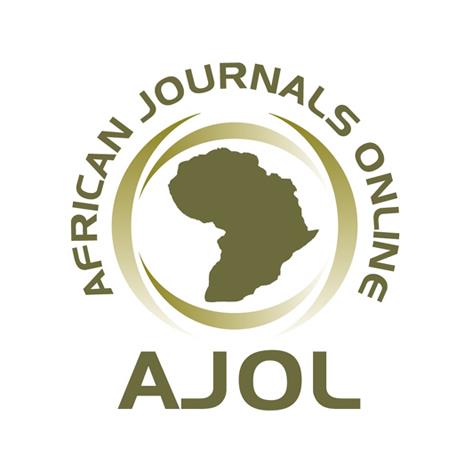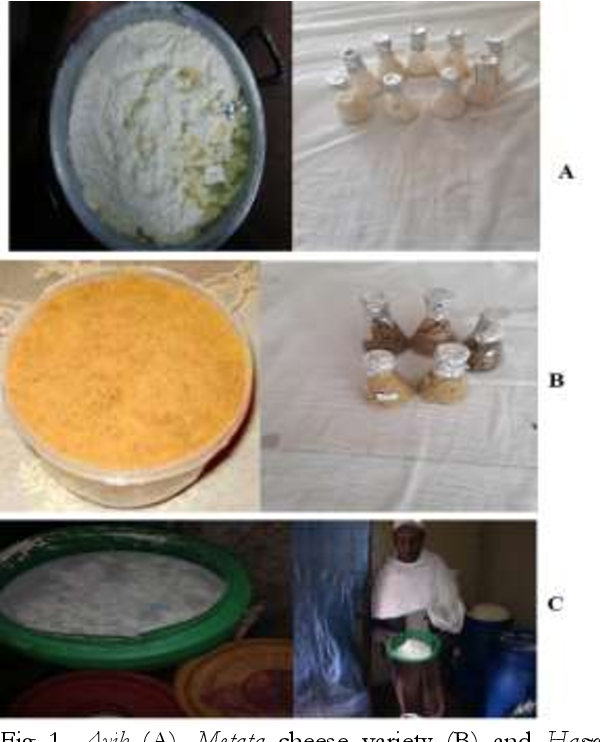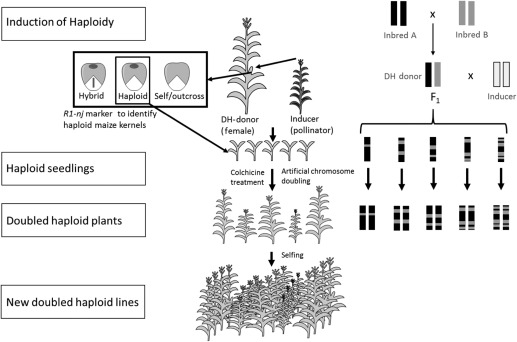The Impact of Foreign Aid, Trade Balance, and Remittance on Economic Growth in Ethiopia: Application of Autoregressive Distributed Lag Model
Downloads
Background: Economic growth is profoundly affected by inflow of foreign capital (foreign aid, foreign investment, and personal remittances). Ethiopia’s economy has declined from time to time due to the variations in foreign aid, trade balance, remittances, etc. Therefore, it is necessary to elucidate the impact of capital inflow on economic growth of the country to handle the variation and mitigate its negative effect on development.
Objective: The objective of the study was to examine the impact of foreign aid, trade balance, and remittance on economic growth in Ethiopia in the short-run and long-run.
Materials and Methods: This study adopted yearly time series data from 1981 to 2021 to estimate Autoregressive Distributed Lag (ARDL) model. To estimate the model, a Dickey Fuller test was applied using generalized least squares. The bound tests for co-integration were used to scrutinize the long-run relationships between the variables.
Results: The results of the study revealed that unexpected shocks in foreign aid, trade balance, remittance and trade openness have had a negative impact on economic growth while unexpected shocks in government expenditure will have significant positive effects on economic growth in the long-run. The lagged error-correction term indicated the system corrects its previous period disequilibrium at the adjustment speed of 52.21% yearly in the long-run.
Conclusion and Implications: The short run changes in remittances have strong and significant impacts on economic growth in the long run. Foreign aid affects economic growth negatively and positively in the long run and short run respectively. This implies that 1% increase in foreign aid causes a 0.017% decline in economic growth of the country in the long run and 1% increase in foreign aid of the country contributes a 0.025% increase to economic growth of the country in the short run. The short run changes in trade balance will have strong and significant impacts on economic growth in the long run. This implies that the government should formulate various systems and raise consciousness on both remittances receivers and senders regarding the use of money to raise savings and businesses to increase fixed investment in the long run. Moreover, the government should focus on the production of domestic commodities to reduce remittances and foreign aid from other countries and increase the yield of export commodities to raise the export performances of the country.
Abel Tenaye. 2019. The role of international remittance on economic growth in Ethiopia. St. Mary's University Institutional Repository: Agriculture and Development Studies. http://hdl.handle.net/123456789/5144. Abounader, T. 2018. The Question of Pure Altruism. Available at http://dx.doi.org/10.2139/ssrn.3426228. Adusah-Poku, F. 2016. Which form of foreign capital inflows enhance economic growth? Empirical evidence in Sub-Saharan Africa. Asian Economic and Financial Review, 6(10): 557–570. Aghoutane, K. and Karim, M. 2017. The impact of foreign aid on economic growth in Morocco: econometric analysis using VECM. International Journal of Economics and Finance, 9(5): 87. Ahmed Abdulle, A. (2022). The Effect of Trade Balance on Economic Growth of Somalia (1980–2020). International Journal of Scientific Research and Management, 10(01): 2914–2923.
Akshaya, K.M. 2018. Ethiopian Trade Balance: An ARDL Approach. International Journal of Management, IT & Engineering, 8(12(1)). Available at http://www.ijmra.us/. Alemayehu Temesgen. 2021. Determinant of Trade Balance in Ethiopia: Approaches from Autoregressive Distributive Lag (ARDL) Model. Journal of World Economic Research, 10(2): 62–73. Atnafu Gebremeskel. 2022. The State of Major Macroeconomic Indicators in Ethiopia and Proposed Directions. Pp. 1–11. Azam, M. and Feng, Y. 2022. Does foreign aid stimulate economic growth in developing countries? Further evidence in both aggregate and disaggregated samples. Quality & Quantity, 56(2): 533–556. Bakari, S., Weriemmi, M.E. and Mabrouk, M. 2022. The impact of digitalization and trade openness on economic growth: New evidence from richest Asian countries. Journal of Research, Innovation and Technologies, 2(2): 95–106. Bewket Aschale. 2022. Impact of Capital Flow on Economic Growth: Empirical Evidence from Ethiopia (1980-2010) using ARDL Approach. Ethiopian Economics Association (EEA). Pp. 177–201. Blavasciunaite, D., Garsviene, L. and Matuzeviciute, K. 2020. Trade balance effects on economic growth: Evidence from European Union Countries. Economies, 8(3): 54. https://doi.org/10.3390/economies8030054.
Bruk Alemu. 2022. News Analysis: Impact of soaring fuel price keeps transport sector on edge. Available at https://addisstandard.com/news-analysis-the-impact-of-soaring-oil-prices-on-the-transport-sector/#. Bunje, M.Y., Abendin, S. and Wang, Y. 2022. The Effects of Trade Openness on Economic Growth in Africa. Open Journal of Business and Management, 10(2): 614–642. Debelo Bedada and Fetene Bogale. 2022. Effect of International Remittance on Economic Growth: Empirical Evidence from Ethiopia. Journal of International Migration and Integration, 23(2): 383–402. Edward, S.P. and Karamuriro, H. T. 2020. Effects of foreign aid inflow on economic growth of Uganda: autoregressive distributed lag modelling (ARDL). International Journal of Sustainability Management and Information Technologies, 6(2): 36–49. Ekanayake, E.M. and Moslares, C. 2020. Do remittances promote economic growth and reduce poverty? Evidence from Latin American countries. Economies, 8(2): 35. Elliott, G., Rothenberg, T.J. and Stock, J.H. 1992. Efficient tests for an autoregressive unit root. Econometrica, 64(4): 813–836.
Engle, R.F. and Granger, C.W.J. 1987. Co-integration and error correction representation, estimation, and testing, Econometrica, 55: 251–276.
Fasanya, I.O. and Olayemi, I.A. 2018. Balance of payment constrained economic growth in Nigeria. Future Business Journal, 4(1): 121–129.
Frimpong, J.M. and Oteng-Abayie, E.F. 2006. The impact of external debt on economic growth in Ghana: a co-integration analysis. Journal of Science and Technology, 26(3): 122–131. Garry, S. and Rivas, V.J.C. 2017. An analysis of the contribution of public expenditure to economic growth and fiscal multipliers in Mexico, Central America and the Dominican Republic, 1990-2015. Studies and Perspectives Series, 173: 1-58.
Haile Girma. 2015. The impact of foreign aid on economic growth: Empirical evidence from Ethiopia (1974-2011) using ARDL approach. Journal of Research in Economics and International Finance, 4(1): 1–12. Hassen, T. and Bilali, H. 2022. Impacts of the Russia-Ukraine war on global food security: Towards more sustainable and resilient food systems. Foods, 11(15): 1–17. https://doi.org/10.3390/foods11152301.
IMF (International Monitory Fund). 2021. The International Monitory Fund Executive Board Extends Debt Service Relief for 28 Eligible Low-Income Countries through October 15, 2021. Pp. 1–14.
Imoughele, L.E. and Ismaila, M. 2015. Monetary policy and balance of payments stability in Nigeria. International Journal of Academic Research in Public Policy and Governance, 2(1): 1–15.
Jawaid, S.T. and Raza, S.A. 2012. Workers’ remittances and economic growth in China and Korea: An Empirical Analysis. Journal of Chinese Economic and Foreign Trade Studies, 5(3): 185–193.
Johansen, S. 1991. Estimation and Hypothesis Testing of Co-Integration Vectors in Gaussian Vector Autoregressive Models. Econometrica, 1551–1580.
Johansen, S. and Juselius, K. 1990. Maximum likelihood estimation and inferences on co-integration–with application to the demand for money, Oxford Bulletin of Economics and Statistics, 52: 169–210.
Karamuriro, H.T., Ssemanda, E.P. and Bbaale, E. 2020. Foreign Aid Inflow and Domestic Savings in Uganda: Error Correction Modelling. Journal of World Economic Research, 9(1): 41–50. Keho, Y. 2017. The impact of trade openness on economic growth: The case of Cote d’Ivoire. Cogent Economics & Finance, 5(1): 1332820. https://doi.org/10.1080/23322039.2017.1332820. Kira, A.R. 2013. The factors affecting gross domestic product (GDP) in developing countries: The case of Tanzania. European Journal of Business and Management, 5(4): 148–158.
Kirikkaleli, D., Adeshola, I., Adebayo, T.S. and Awosusi, A.A. 2021. Do foreign aid triggers economic growth in Chad? A time-series analysis. Future Business Journal, 7(1): 1–17. Kumar, R., Jangir, D.K., Verma, G., Shekhar, S., Hanpude, P., Kumar, S., Kumari, R., Singh, N., Bhavesh, N.S., Jana, R.N. and Maiti, T.K. 2017. S-nitrosylation of UCHL1 induces its structural instability and promotes α-synuclein aggregation. Scientific Reports, 7(1): 1–16. Laurenceson, J. and Chai, J.C. 2003. Financial reform and economic development in China. Edward Elgar Publishing. Available at https://www.elgaronline.com/view/1840649887.xml. Lucas, R.E. and Stark, O. 1985. Motivations to remit: Evidence from Botswana. Journal of Political Economy, 93(5): 901–918.
Mandefrot Amare, Lemma Zemedu, Abule Mehare and Ketema Bekele. 2022. The impact of COVID-19, vaccination, and non-pharmaceutical policies on Ethiopian trade: a structural gravity using semi-parametric machine learning. Development Studies Research, 9(1): 159–176. Mohamed Sghaier, I. 2021. Trade openness, financial development and economic growth in North African countries. International Journal of Finance & Economics. 28(4): 1–12.
Mohapatra, G., Giri, A.K. and Sehrawat, M. 2016. Foreign aid, macroeconomic policies and economic growth nexus in India: An ARDL bounds testing approach. Theoretical and Applied Economics, 4(609): 183–202.
Narayan, P.K. 2005. The saving and investment nexus for china: Evidence from Co-integration tests. Applied Economics, 37(17): 1979–1990.
Nkoro, E. and Uko, A.K. 2016. Autoregressive Distributed Lag (ARDL) co-integration technique: application and interpretation. Journal of Statistical and Econometric Methods, 5(4): 63–91.
Olayungbo, D.O. and Quadri, A. 2019. Remittances, financial development, and economic growth in sub-Saharan African countries: evidence from a PMG-ARDL approach. Financial Innovation, 5(1): 1–25.
Oteng-Abayie, E.F., Awuni, P.A. and Adjeidjei, T.K. 2020. The Impact of Inward Remittances on Economic Growth in Ghana. African Journal of Economic Review, 8(3): 49–65.
Pesaran, H., Shin, Y. and Smith, J. 1999. Bounds Testing Approach to analysis of Long Run Relationships. Journal of the American Statistical Association, 94(446): 621–634.
Pesaran, M.H. 1997. The Role of Economic Theory in Modeling the Long-run. The Economics Journal, 107: 178–191.
Pesaran, M.H. and Pesaran, B. 1997. Working with Microfit 4.0: Interactive econometric analysis. Oxford University Press, UK. Pp. 505.
Pesaran, M.H. and Smith, R.J. 1998. Structural Analysis of Cointegration VARS. Journal of Economic Surveys. 12: 471–505.
Pesaran, M.H., Shin, Y. and Smith, R.J. 2001. Bounds testing approaches to the analysis of level relationships. Journal of Applied Econometrics, 16(3): 289–326.
Rahnama, M., Fawaz, F. and Gittings, K. 2017. The effects of foreign aid on economic growth in developing countries. The Journal of Developing Areas, 51(3): 153–171.
Rasoanomenjanahary, M.A., Cao, L. and Xi, Y.L. 2022. The impact of trade openness on economic growth: Empirical evidence from Madagascar. Modern Economy, 13: 629–650. Reda, A. and Reda, A. 2018. Self-Interest: An intellectual history. Prophecy, piety, and profits: A conceptual and comparative history of Islamic economic thought. Pp. 263–289.
Solow, R.M. 1956. A Contribution to the theory of Economic Growth. The Quarterly Journal of Economics, 70(1): 65–94. Tassew Dufera and Nandeeswar, R. 2016. The impact of remittances on economic growth in Ethiopia. Indian Journal of Commerce and Management Studies, 7(2): 01–15.
Tekeba Eshetie, Kelifa Hussien, Tadesse Teshome and Abebaw Mekonnen. 2018. Meat production, consumption and marketing tradeoffs and potentials in Ethiopia and its effect on GDP growth: a review. Journal of Nutrition, Health and Food Engineering, 8(3): 228–233.
Tesfahun Bitew. 2014. Foreign aid and economic growth in Ethiopia (A co-integration analysis). Research by University of Addis Ababa University Ethiopia. Available at http://etd.aau.edu.et/handle/123456789/14941.
Thapa, I. 2020. Foreign aid: Positive and negative impact in developing countries. Public Administration Campus, 1–7. Trinh, T. (2014). Foreign aid and economic growth: The impact of aid on determinants of growth-The case of Vietnam. Available at http://urn.fi/URN:NBN:fi:aalto-201503061962. Wei, J. 2014. On Bootstrap Evaluation of Tests for Unit Root and Co-integration. Digital Comprehensive Summaries of Uppsala Dissertations from the Faculty of Social Sciences. Pp. 104. Zobair, S.A.M. and Uddin, M. 2020. Nexus between foreign direct investment, foreign aid, foreign remittance and economic growth in Bangladesh: Analy
Copyright (c) 2023 Murad Mohammed Baker

This work is licensed under a Creative Commons Attribution-NoDerivatives 4.0 International License.
- I am authorized by my co-authors to enter into these arrangements.
- I warrant, on behalf of myself and my co-authors, that:
- the article is original, has not been formally published in any other peer-reviewed journal, is not under consideration by any other journal and does not infringe any existing copyright or any other third party rights;
- I am/we are the sole author(s) of the article and have full authority to enter into this agreement and in granting rights to Springer are not in breach of any other obligation;
- the article contains nothing that is unlawful, libellous, or which would, if published, constitute a breach of contract or of confidence or of commitment given to secrecy;
- I/we have taken due care to ensure the integrity of the article. To my/our - and currently accepted scientific - knowledge all statements contained in it purporting to be facts are true and any formula or instruction contained in the article will not, if followed accurately, cause any injury, illness or damage to the user.
- I, and all co-authors, agree that the article, if editorially accepted for publication, shall be licensed under the Creative Commons Attribution License 4.0. If the law requires that the article be published in the public domain, I/we will notify Springer at the time of submission, and in such cases the article shall be released under the Creative Commons 1.0 Public Domain Dedication waiver. For the avoidance of doubt it is stated that sections 1 and 2 of this license agreement shall apply and prevail regardless of whether the article is published under Creative Commons Attribution License 4.0 or the Creative Commons 1.0 Public Domain Dedication waiver.
- I, and all co-authors, agree that, if the article is editorially accepted for publication in Haramaya Journals, data included in the article shall be made available under the Creative Commons 1.0 Public Domain Dedication waiver, unless otherwise stated. For the avoidance of doubt it is stated that sections 1, 2, and 3 of this license agreement shall apply and prevail.












